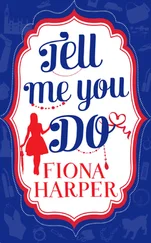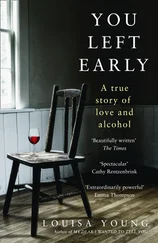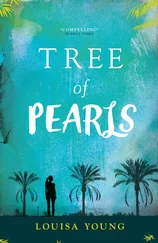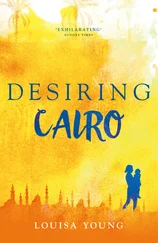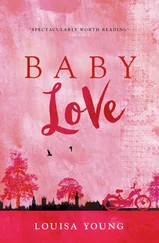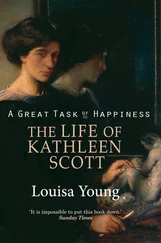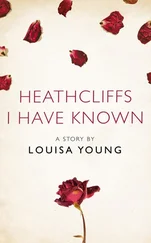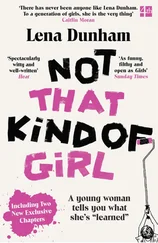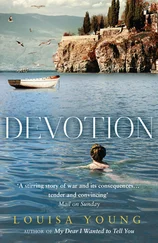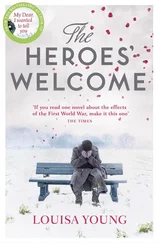Patterns and habits grew up, and it all seemed very normal. Time passed, and it was normal. Even for Bethan, the sudden lurches of maternal loss subsided after a year or two. They were lucky. Placing a boy was like marrying off a daughter – the good parents’ first responsibility. And Riley was, it seemed, placed, and happily. The years of Riley’s late childhood were, by any standard, long and nourishing and golden; blessed, not riven, by the double life he was able to lead. The weeks belonged to school and Sir Alfred, and Sundays to his family, when he would eat, and let the little girls climb all over him and use him as a seesaw and make him throw them up in the air. Loads of older brothers and sisters lived away, after all, and came back slightly too big for the little house they’d been born in. It only made them more glamorous.
*
Early one mild spring Saturday morning, seven years after he had first come to Orme Square, Riley, now eighteen, took the long, unwieldy pole that Sir Alfred could no longer manage and unwound the bolts on all the skylights and high windows in the studio. A beautiful soft air slipped in off the park and the squares, limpid, blossomy, dancing with cherry and lilac. Riley was thinking, How would you paint that? Who could paint that clean lightness? Even the horses’ hooves outside on the Bayswater Road sounded lighter. What a day!
Nadine arrived as usual about nine for her drawing lesson, though it wasn’t till ten, and as usual Sir Alfred was still at his coffee, talking to the newspaper. So, as usual, Nadine perched herself on the old workbench up in the studio, wearing her dark blue pinafore, swinging her legs, and watching as Riley laid out brushes, checked supplies, made a list. When he had done he stopped and sketched her instead, light pencil, just a quick thing. He didn’t think it was very good. She was much better than him at getting a likeness. There was a bunch of hyacinths in a glass jar beside her on the dark wood, also blue, the blue of the Madonna’s cloaks in Sir Alfred’s books of Renaissance paintings. He would have liked to paint them, and her. He was fascinated by the variability of colour, by the adjustability of oils. He longed for an excuse to stare at her for hours.
‘I came on my bicycle today,’ she said, testing him out.
‘Can I have a go?’ He had been idly trying to persuade her to come swimming in the Serpentine; she was resisting. She would never come swimming any more. The thought interested him. Maybe he could use the testing of the bicycle to get her into the park, at least.
‘It’s a girl’s bicycle,’ she said.
‘All bicycles are boys’ bicycles,’ he said.
She gave him an evil look. She had long ago persuaded him that the suffragettes were right, but he still liked to torment her. ‘That’s too nearly true to be funny,’ she said. ‘I shall have a motorcycle when I’m older. I’ll go abroad on it, all over the world, drawing and painting everything I see, and paying my way in portraits. No one will stop me.’
‘They wouldn’t dare,’ he said. Why do I keep saying stupid things? Mean things?
‘You mean you wouldn’t dare . . .’ she said, but she said it fondly.
‘I’d dare anything where you’re concerned,’ he said boldly.
‘Oh, you won’t have to. After I’ve been all over the world on my motorcycle I’ll want to come back and be a famous artist and have a lovely house and babies. I’ll bring a kangaroo to be my pet. You can share it.’
‘The kangaroo? Or the house?’ He had a sudden quick vision of an adult life: two easels at opposite ends of a sunny studio.
‘Everything,’ she said. ‘You can even share my motorcycle, so long as you don’t pretend to everyone that it’s yours.’
She said it so easily, he thought she must not have any idea what she was saying. Of course he let the delightfulness of the image dazzle its impossibility into invisibility. Her future, after all, was planned and certain: marriage. His was more . . . open – which allowed him to think impossible thoughts.
Don’t get attached to the girl, Riley. They’re not like us. His mother’s voice.
Change the subject.
They talked about who could paint a spring morning like this one.
‘Samuel Palmer,’ he suggested. She was of the opinion that Palmer was more June, heavier and more lush. He liked to hear her say the word, ‘lush’.
‘Well, Botticelli, of course,’ she said.
‘Perhaps there are springs like that in Italy, but that’s no English spring.’
Then she exclaimed, ‘I know! Van Gogh. Like the almond blossoms.’
They took out the large folder of reproductions that Sir Alfred kept purely, Riley sometimes thought, to sneer at – or perhaps out of fear of such a different way of doing it. They laid out the picture on the long, pale, rough trestle desk under the window, and stood side by side, falling into the picture, the moss and sunlight on the branches, the eternal deep sky behind, the lovely light-catching little blossoms twisted this way and that, the darts of tiny red buds, the one small broken-off branch with its sharp remnant blade pointing up like a thorn in Paradise.
‘I wonder where it is now,’ she said. ‘The actual painting.’ They had seen it in an exhibition at the Grafton Gallery to which Sir Alfred had taken them. The paintings, to Nadine and to Riley, had been perfect, wonderful, naturally beautiful, right, somehow, and they hadn’t understood at all why people were laughing, and expostulating, and leaving.
Riley, who had often taken this picture out and had read the back of the print, said: ‘It’s in Amsterdam.’
‘Let’s go and see it,’ she said.
There, with the pressure of her arm against his, in the morning sun, under the window, smell of oils and turpentine and hyacinth, her voice: ‘Let’s go and see it.’
‘On your motorcycle?’ he said, with a laugh.
‘Yes! Or – in some real way. Let’s do things, Riley. I’m going a little mad, you know. We’ll be grown-ups soon. Let’s DO things. Like when you took me to look at the Snake Lady in Portobello Market, and all those people were singing.’ They’d only been thirteen when they’d done that, and they’d got into terrible trouble. ‘Let’s go to Brighton and paddle and eat shrimps and see the Pavilion! Let’s go to Amsterdam . . .’
‘Let’s run away together to Paris and go to art school,’ he said. ‘Let’s rob a bank and live like kings and go to Rodin’s open weekends at his studio, and wear gypsy robes and eat figs.’
‘Stop it,’ she said. ‘We could do some thing . . .’
Footsteps on the stairs shut them up. It was one of Sir Alfred’s students, Terence, turning up to work on his big oil of Kensington Palace. Riley felt a strong urge to push him down the stairs. Instead he revelled in a beautiful look of complicity with Nadine, which made his blood run warmer and his heart light and brave.
He glanced at Terence’s painting emerging from its dust-sheet. Why Terence bothered, he hadn’t the slightest idea. It might as well have been painted in 1860. Plus he was doing it from east of the Round Pond, looking west with a sunset behind the palace, so for all he called it Queen Victoria Over the Water , the statue in front of the palace was all wrong because in reality it would be in shade. In fact everything would be in shade, as his light was completely wrong . . . He should be doing it in morning light, but he was too lazy to get up early. Sir Alfred was indulgent with him, Riley thought. But then Sir Alfred is indulgent with me too, so . . .
Oh, go away, Terence.
It was all he wanted now. All he ever wanted. Alone with Nadine. The very words gave him a frisson.
Читать дальше
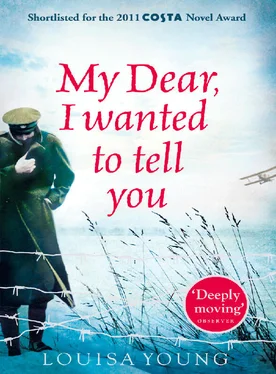
![Ally Carter - [Gallagher Girls 01] I'd Tell You I Love You But Then I'd Have to Kill You](/books/262179/ally-carter-gallagher-girls-01-i-d-tell-you-i-lo-thumb.webp)
